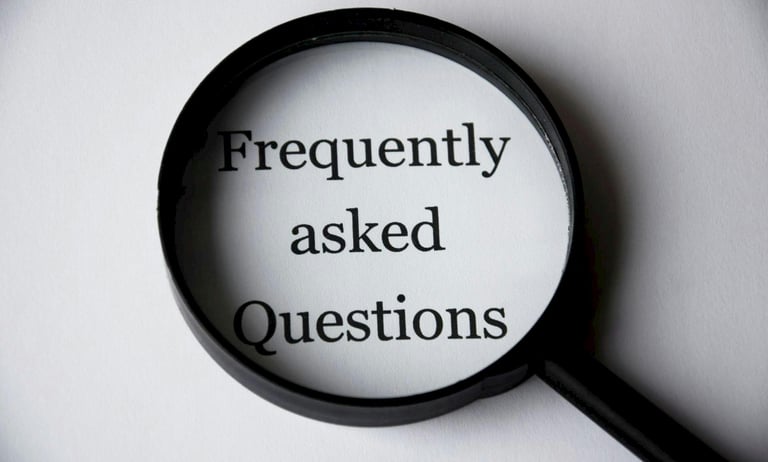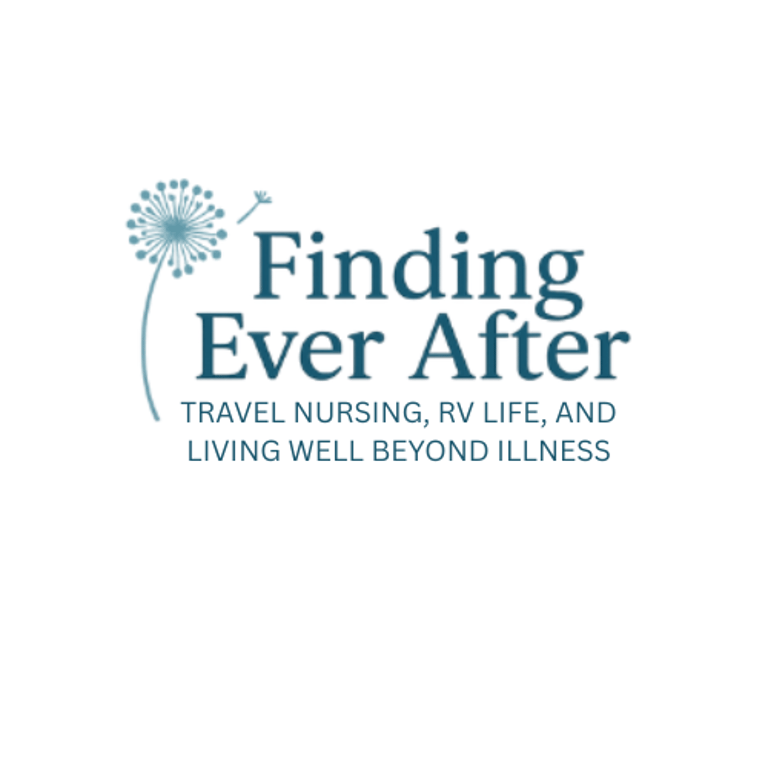Ask Me Anything: Chronic Illness FAQs Answered with Empathy
Living with chronic illness is full of questions—big and small. These compassionate chronic illness FAQs answer common concerns with honesty, hope, and practical advice.
ADVOCACY & HOPE FOR THE FUTURE
Velvet Larrabee
8/26/20254 min read


Introduction: The Questions We’re Afraid to Ask
If you’ve been living with a chronic illness—or you’re newly diagnosed—you probably have more questions than answers. Some of them are medical, but most of them? They’re emotional, personal, and messy.
“How do I explain this to people without sounding dramatic?”
“Will I ever date again?”
“Am I being lazy… or just sick?”
“Why do doctors make me feel invisible?”
These are questions many of us carry quietly. Too often, the internet gives us quick fixes or clinical answers that don’t touch the heart of what we’re actually feeling.
This post is different. Think of it as a safe space for FAQs about chronic illness—answered with empathy, honesty, and the kind of hope that doesn’t deny your reality.
If you’ve ever wanted to sit down with someone who truly gets it, this is for you.
FAQ #1: “Am I really sick, or am I just being dramatic?”
You are not being dramatic. Period.
One of the hardest parts of chronic illness is the constant self-doubt. Symptoms don’t always look visible from the outside, which makes you question your own experience. But pain, fatigue, brain fog, and flares are very real—even if you can still “look fine.”
👉 Remember: You don’t need permission to be unwell. Your body already told you something is wrong, and your lived experience matters.
If you ever find yourself spiraling into self-blame, try this:
Write down what symptoms you felt that day.
Note how they impacted your ability to function.
Remind yourself: “This is evidence. I’m not imagining it.”
Related read: [When Doctors Don’t Believe You: Overcoming Medical Gaslighting in Chronic Illness]
FAQ #2: “How do I explain my illness to friends and family?”
It’s exhausting having to “translate” your reality for others. Some people mean well but don’t understand; others may minimize your symptoms.
Here’s a simple framework you can use when explaining your condition:
Keep it short. (“I have a condition that affects my energy and causes unpredictable flares.”)
Offer an example. (“On some days I can run errands, but on others I can barely get out of bed.”)
State your need. (“It helps when people are patient if I cancel plans last minute.”)
You don’t owe everyone your full medical history. But letting people know how your illness impacts your daily life can foster understanding.
FAQ #3: “How do I deal with guilt when I cancel plans?”
This one cuts deep. Social isolation is one of the hardest parts of chronic illness. You want to show up for the people you love—but sometimes your body has other plans.
Here’s the truth: Canceling is not failing. It’s protecting your health.
Instead of apologizing excessively, try:
“I was really looking forward to seeing you, but I’m having a tough day. Can we reschedule?”
“I value our time together. Thanks for understanding.”
People who care about you will understand. And for those who don’t? Their disappointment is not your responsibility.
Related read: [Lonely and Ill: Breaking Social Isolation When Chronic Illness Means Cancelled Plans]
FAQ #4: “Will I ever date—or stay in a relationship—with chronic illness?”
Dating with chronic illness can feel terrifying. You might worry about rejection, shame, or being “too much.” But here’s the thing: the right people will want you, not just a version of you without illness.
Some tips:
Be honest early—but not too early. You don’t need to spill everything on a first date, but don’t hide your condition until it becomes impossible to explain.
Frame it as part of your story, not your whole identity. (“I have a condition that sometimes limits what I can do, but I’ve found ways to adapt and still enjoy life.”)
Watch their response. If someone dismisses or belittles you, that’s a red flag.
Real love can handle real challenges. You deserve connection, even if your path to it looks different.
Related read: [Dating and Chronic Illness: How to Talk About Your Condition Without Shame]
FAQ #5: “How do I deal with anxiety about the future?”
Chronic illness makes the future feel uncertain. It’s natural to fear worsening symptoms, financial strain, or losing independence.
Here’s what helps:
Ground yourself in today. Ask: “What do I need to get through this day?”
Create flexible goals. (“I can’t run marathons anymore, but I want to take short daily walks when I can.”)
Build a supportive care team. Doctors, therapists, and online communities can ease the weight of uncertainty.
Anxiety thrives in “what-ifs.” The antidote is building confidence in your ability to adapt, no matter what tomorrow looks like.
Related read: [Mental Health Meets Chronic Illness: Managing Anxiety and Self-Compassion Everyday]
FAQ #6: “What if my doctor doesn’t take me seriously?”
Sadly, medical gaslighting is a real and painful experience. If you’ve ever been told “it’s just stress” or “you’re too young to be sick,” you know how invalidating it feels.
Some strategies for advocating for yourself:
Bring notes. Write down symptoms, dates, and impacts.
Use firm but respectful language. (“I understand what you’re saying, but I need to rule out X before I can rest easy.”)
Bring support. A friend or advocate can help you feel stronger in appointments.
And if a doctor consistently dismisses you? You are allowed to find another provider. You deserve care that listens and validates.
Related read: [Navigating the Healthcare Maze: How to Advocate for Yourself and Get Heard]
FAQ #7: “Can I still find purpose and joy with chronic illness?”
Yes. But purpose might look different than you imagined.
For many people, illness reshapes priorities. You may not be able to pursue your life the way you originally planned—but that doesn’t mean your life can’t be meaningful.
Some ideas:
Explore creative outlets. Writing, art, or music can bring joy even on low-energy days.
Try advocacy. Sharing your story can help others feel less alone.
Celebrate small victories. Taking a shower on a flare day is an accomplishment.
Meaning isn’t about productivity or perfection. It’s about noticing what makes life feel worth living—and leaning into it.
Related read: [Finding Your Meaning: Purpose and Identity Beyond Illness]
Final Thoughts: You’re Not Alone in These Questions
If you take one thing from this FAQ, let it be this: Your fears, doubts, and questions are valid. You are not weak for having them.
This space is here to remind you that you’re not navigating this maze alone.
🌱 If you’re ready to go beyond the basics, check out my Complete Guide to Living with Chronic Illness.
